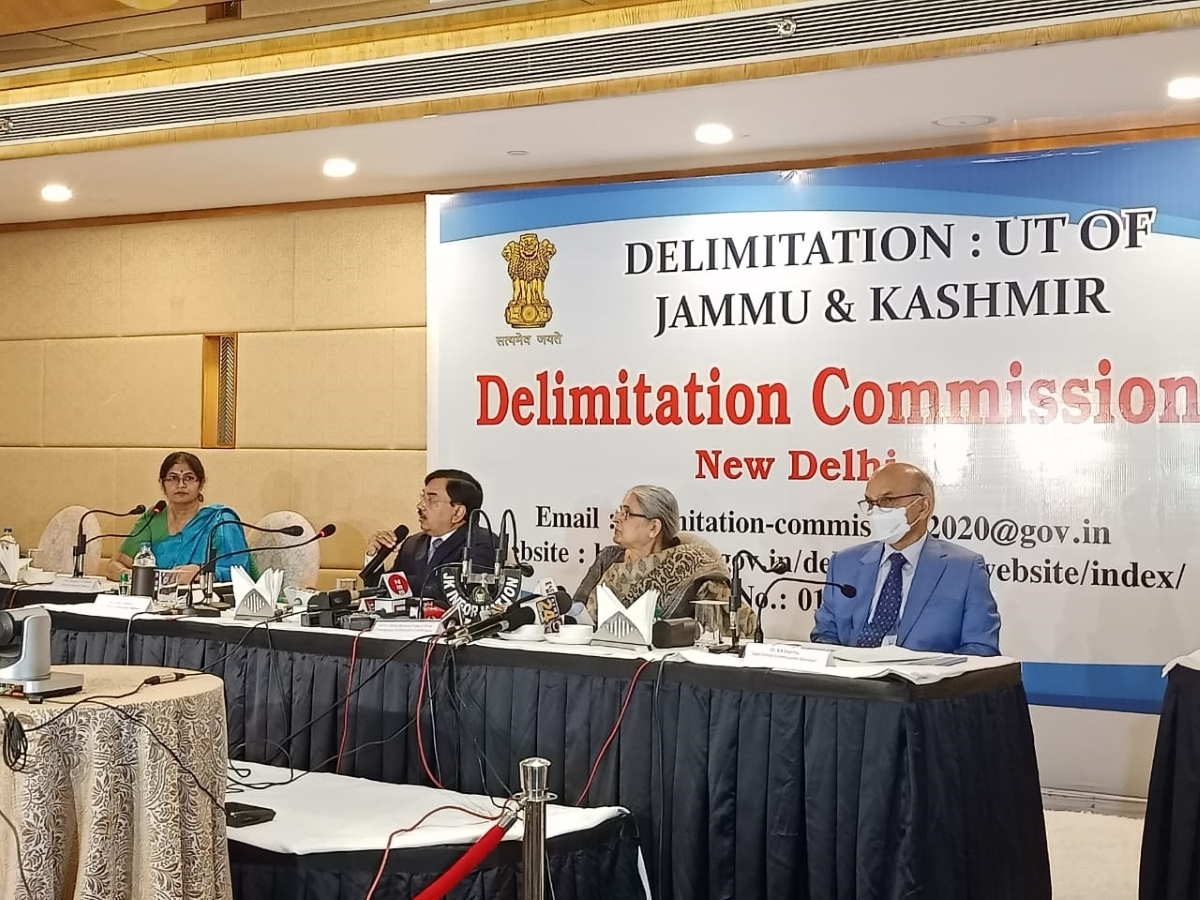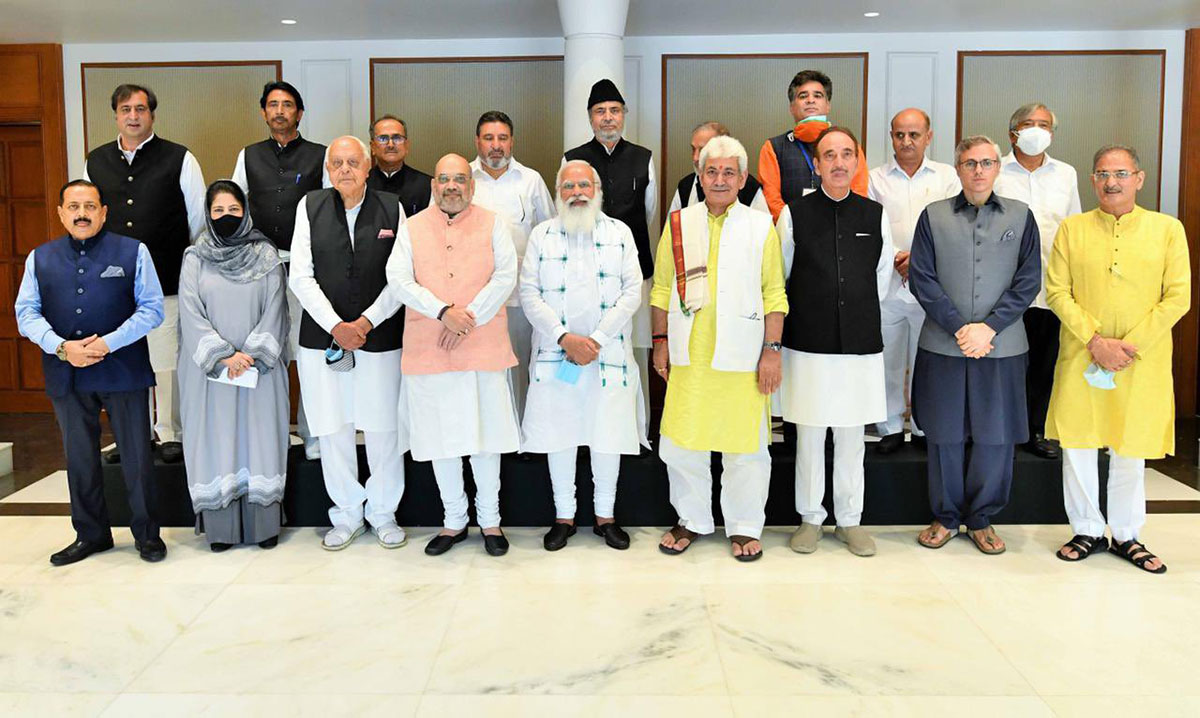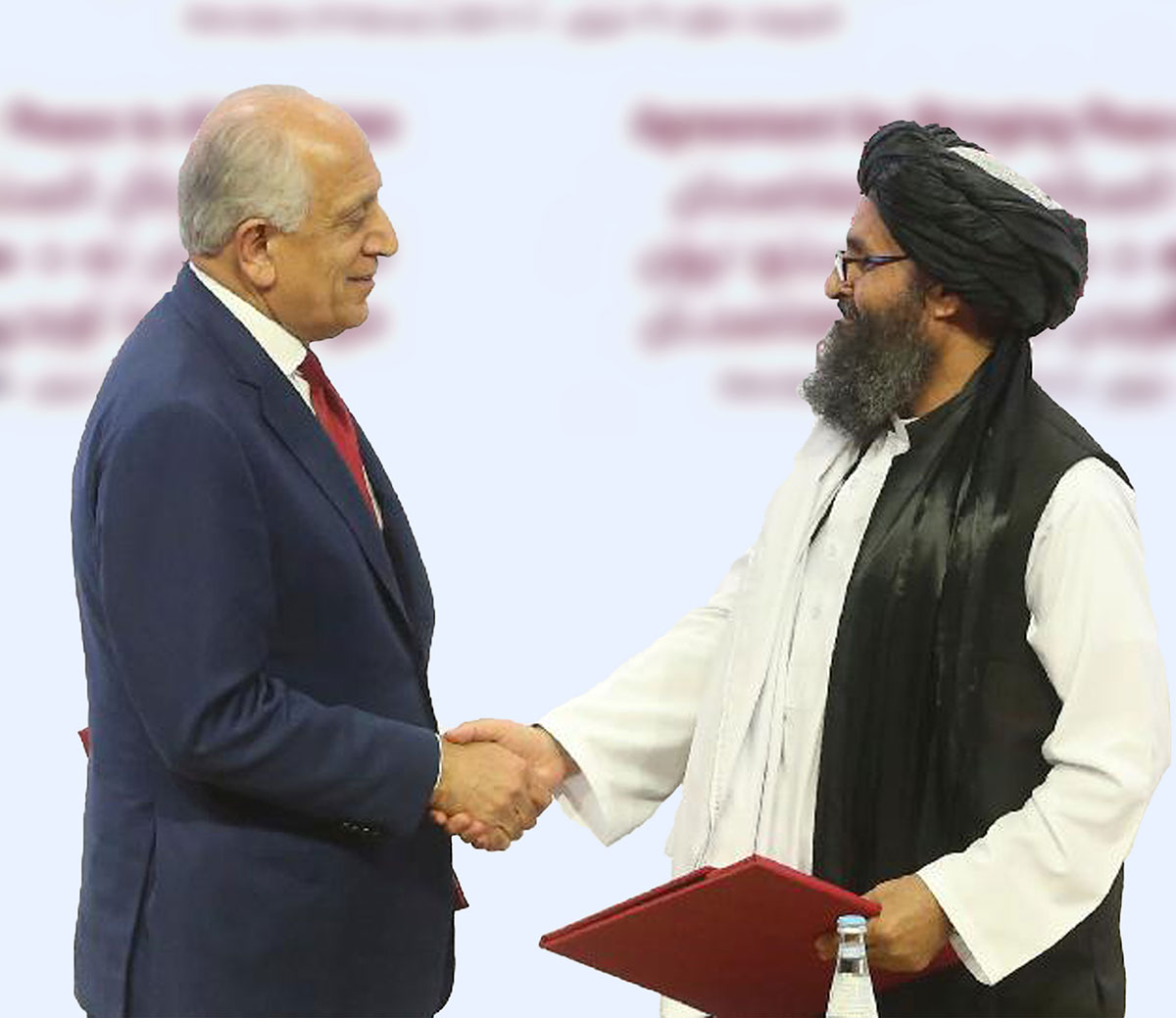The centre is currently prioritizing the achievement of its ideological and strategic objectives in Kashmir before restoring the statehood, possibly a truncated one writes Riyaz Wani

Delimitation Commission charged with increasing the number of seats in the Jammu and Kashmir Assembly arrived in the union territory on July 6 for a four-day visit. This visit came directly after Prime Minister Narendra Modi’s meeting in New Delhi with Jammu and Kashmir leaders, which ended without any concrete outcomes.
In Kashmir, the Commission headed by Justice (retd) Ranjana Prakash Desai held meetings with political parties and officials for their inputs about redrawing new constituencies in the former state. Except for the PDP, all other parties chose to meet the Commission. The exercise, the PDP said, was pre-planned and aimed to realise the “political vision of a particular party”.
The Srinagar Visit
Nevertheless, the delegations of the other parties met with the Commission. This included the National Conference, which until recently had boycotted it, terming the exercise illegal and, according to the party, stemming from the revocation of Article 370 and the subsequent Jammu and Kashmir Reorganization Act that are currently facing challenges in the Supreme Court.
In their interactions with the Commission, the Kashmir-based parties expressed reservations about the exercise. They sought transparency in how the Commission goes about redrawing the constituencies and which the commission promised it would do.
The delimitation process has also given rise to demands for reserved constituencies from the minorities like Kashmiri Pandits and Sikhs, both seeking five seats each in the Assembly.
The Emerging Sequence
Going by the sequence of the steps to be followed before the statehood is restored, the completion of the delimitation exercise would lead to the holding of the elections within the union territory framework. And statehood would be a third step in the process.
But this sequence is unacceptable to major Jammu and Kashmir parties including Congress. The People’s Alliance for Gupkar Declaration, the five-party group that seeks restoration of Jammu and Kashmir autonomy has already expressed disappointment over the meeting with the PM.
But as for the centre, there is no change in its Kashmir policy. Prime Minister Modi led government is prioritizing the achievement of its ideological and strategic objectives in Kashmir before restoring statehood. And the delimitation commission which seeks to reduce the political weightage of Kashmir in the future Assembly assumes a profound significance in this context.
Altering Political Landscape
While the delimitation seems like a proper process, it will end up changing the political landscape of Jammu and Kashmir like never before. It could very well pave way for a future Chief Minister who is from Jammu, a longstanding political plank of the BJP. And once that is done, there is little guarantee that statehood would be the next logical step. Or whether the statehood to be granted would be full or a truncated one – one that resembles a Delhi-type arrangement where the real power remains vested with the governor. Such an arrangement would hardly be enough to make a redeeming difference to the existing state of affairs in Jammu and Kashmir, as fundamentally there wouldn’t be much that would change on the ground.

Where does this leave Kashmir? Nowhere. Kashmir could have hoped for some restraint by the centre in the execution of its Jammu and Kashmir project only if at least some of its elements like say attempt to alter demography had been resolutely opposed in the Jammu division. Clearly, the people in Jammu are uneasy about these issues, but they’re willing to overlook them as the new regime gives the majority community a disproportionately high degree of political influence.
Jammu would have certainly resisted any attempt to be deprived of land or jobs, if it had been divided up into either a state or a union territory, just like Ladakh. And it is probably for the same probable reason that New Delhi didn’t trifurcate Jammu and Kashmir despite the longstanding demand for statehood in Jammu.
But for now, the people of Jammu and Kashmir could do little but keep their fingers crossed. The Delimitation Commission has promised transparency and Kashmir’s unionist parties have taken it on its word. But suspicions persist. The hope that New Delhi would accommodate the demand of Pakistan for restoration of Jammu and Kashmir autonomy in order to resume the dialogue with the neighbour has turned out to be an illusion.

Geostrategic Changes
Some people in the union territory have pinned their hopes on the shifting geopolitics of the region that is thought to force India and Pakistan to sort out their relationship. China’s incursions in Ladakh have made the communist power yet another party to the Kashmir issue. And the alleged China-Pakistan collusion in the region has erected what some observers in Kashmir call “a great wall of China’ around India on its northern and western side”. Also, the cooperation among China, Pakistan, Iran, Russia is giving all indications of the emergence of a geopolitical block. And if all goes well Afghanistan under the Taliban could also be part of this block.
These shifting alignments are putting in place a new geopolitical order. This order, however, in no way would help resolve the issues of the subcontinent particularly those between India and Pakistan. That is if the two countries themselves don’t show a willingness to address these. And it is only when India and Pakistan come together and decide to resolve their issues that the situation in Kashmir could be hoped to change for the better. Currently, if the delimitation exercise does not reflect the existing demographic reality of Jammu and Kashmir, it would result in more problems than it would solve.
from Kashmir Life https://ift.tt/3787V7k
via IFTTThttps://kashmirlife.net
No comments:
Post a Comment